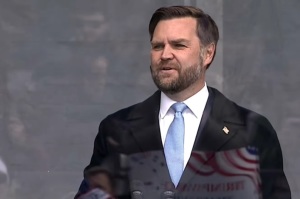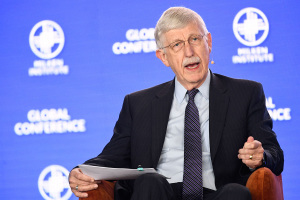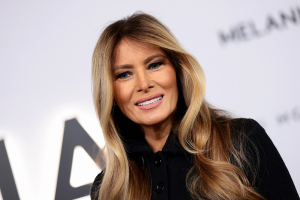Justice Alito decries COVID overreach, ‘disturbing’ trend against religious liberty

Many state government-imposed COVID-19 restrictions lack concern for First Amendment freedoms, U.S. Supreme Court Justice Samuel Alito said in a Thursday Zoom speech to the Federalist Society.
Although laws that allow governors latitude in a response to emergencies can sometimes be appropriate, such laws should not overrule the First Amendment’s religious liberty protections, Alito said.
“The pandemic has resulted in previously unimaginable restrictions on individual liberty,” Alito said. “It is an indisputable statement of fact, we have never before seen restrictions as severe, extensive and prolonged as those experienced for most of 2020.”
Governors show they don’t respect First Amendment freedoms when they end COVID-19 restrictions for other businesses before churches, he said. The state of Nevada limited churches to 50 attendees while allowing bars, casinos, restaurants and indoor amusement parks to remain open. Although a majority of the Supreme Court ruled in July that Nevada's governor could do so, Alito said the U.S. Constitution obviously didn’t support that ruling.
“Deciding whether to allow this disparate treatment should not have been a very tough call,” he said. “You will see in the Free Exercise Clause of the First Amendment, which protects religious liberty, you will not find a ‘craps clause’ or a ‘blackjack clause’ or a ‘slot machine clause.’”
In this case and others like it, public officials have treated freedom of religion as a “second-class right,” Alito said. In other cases, the government wants nuns to buy contraception, forces Christian pharmacists to provide abortion drugs, and takes Christian bakers to court when they refuse to make cakes to celebrate same-sex marriage. During the COVID-19 pandemic, government attacks on religious freedom have become more common, Alito added.
In contrast to these impositions on religious freedom, the government has removed pandemic restrictions to allow easier access for women to get abortion-inducing drugs, he said. A federal district judge in Maryland said that COVID-19 fears shouldn’t prevent women from getting abortions. Abortion seems more important to the government than the right to go to church, Alito said.
These changes have happened rapidly, he noted. In the 1990s, then-President Bill Clinton signed the Religious Freedom Restoration Act after it passed Congress with overwhelming bipartisan support. Thirty years later, House Democrats passed the Equality Act, which would force Christians to violate their beliefs on sex and gender.
“For many today, religious liberty is not a cherished freedom. It's often just an excuse for bigotry, and it can't be tolerated, even when there is no evidence that anybody has been harmed,” Alito said.
Although these dismissive attitudes toward religious freedom predate the pandemic, the response to COVID-19 has shown how pervasive and influential they are, he said.
The United States has moved away from its constitutional roots. Elected representatives don’t write laws in accordance with the Constitution, Alito said. Instead, experts and governors make decrees that often ignore the laws.
“The COVID crisis has served as a sort of constitutional stress test,” he added. “In doing so, it has highlighted disturbing trends that were already present before the virus struck.”
Freedom of speech and the right to bear arms have also come under threat of being “second class rights,” Alito continued. Although the courts must work to protect the constitutional rights of Americans, the laws will not matter if Americans don’t want freedom.
“In the end, there is only so much that the judiciary can do to preserve our Constitution, and the liberty it was adopted to protect,” Alito said. “As Learned Hand famously wrote, ‘Liberty lies in the hearts of men and women; when it dies there, no Constitution, no law, no court can do much to help it.’”



























